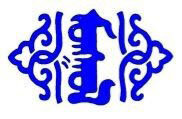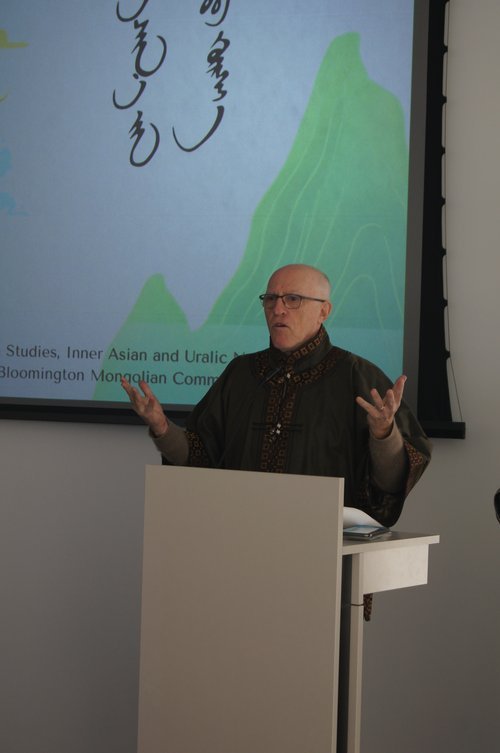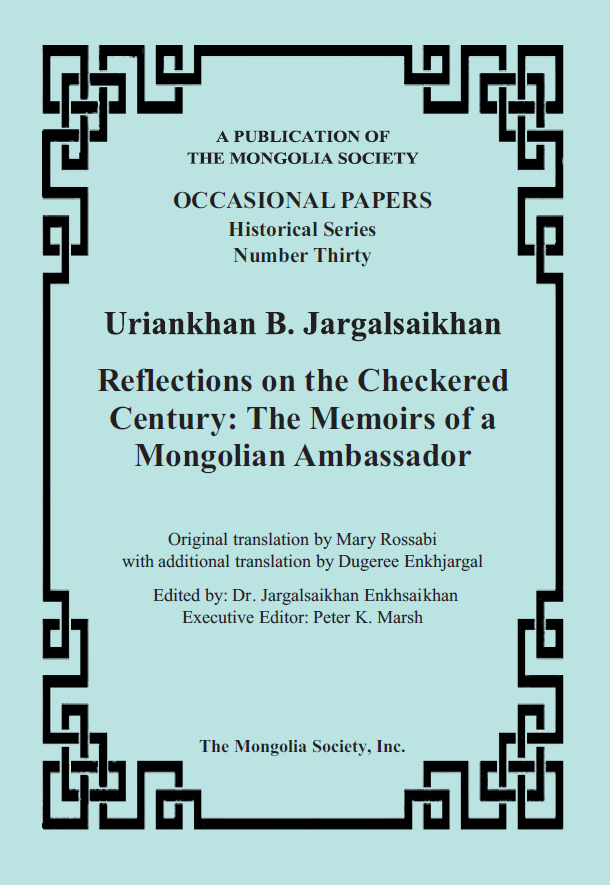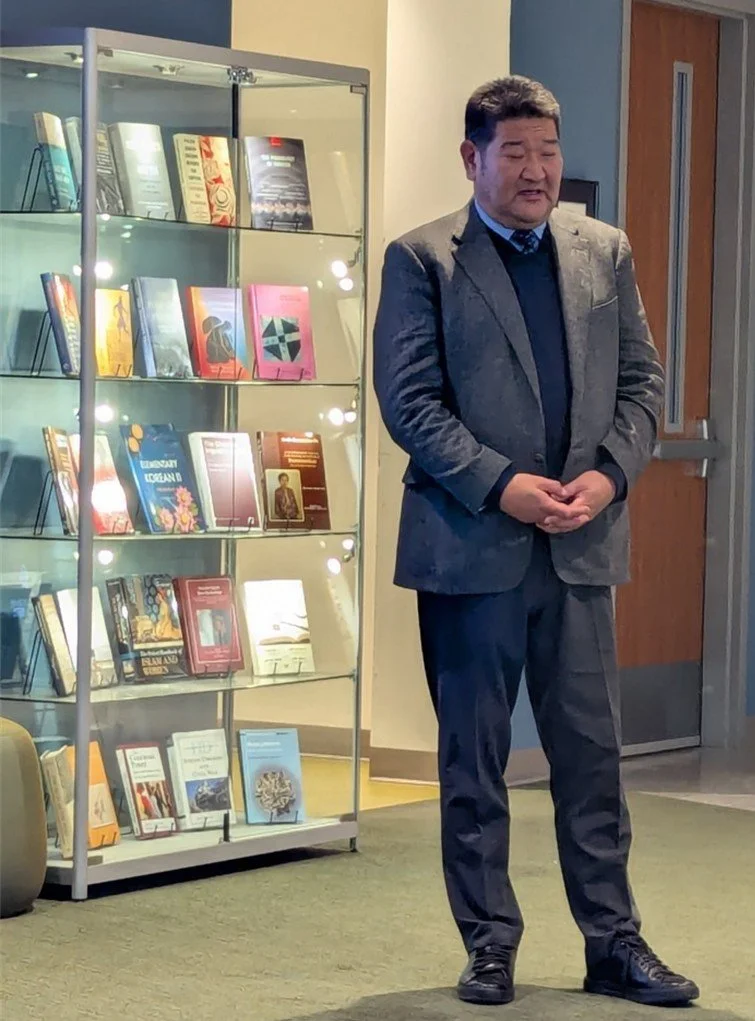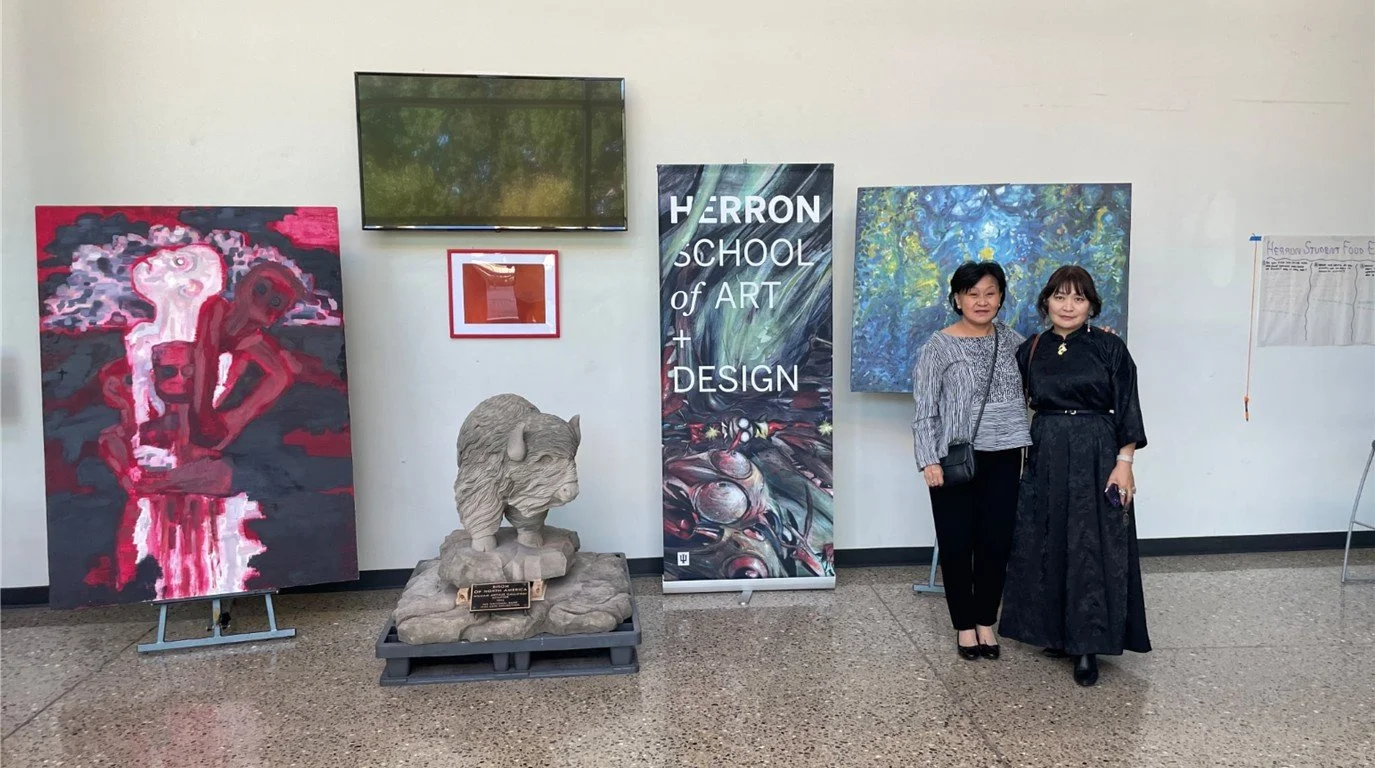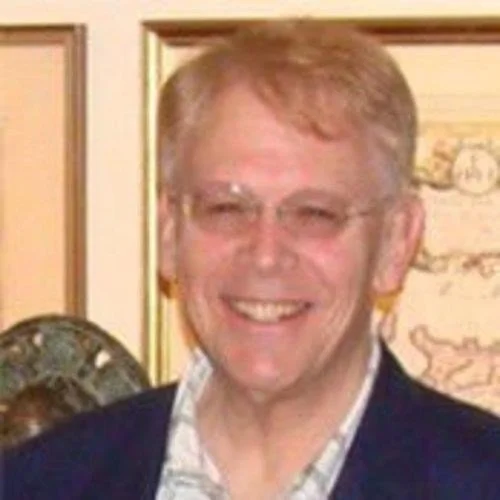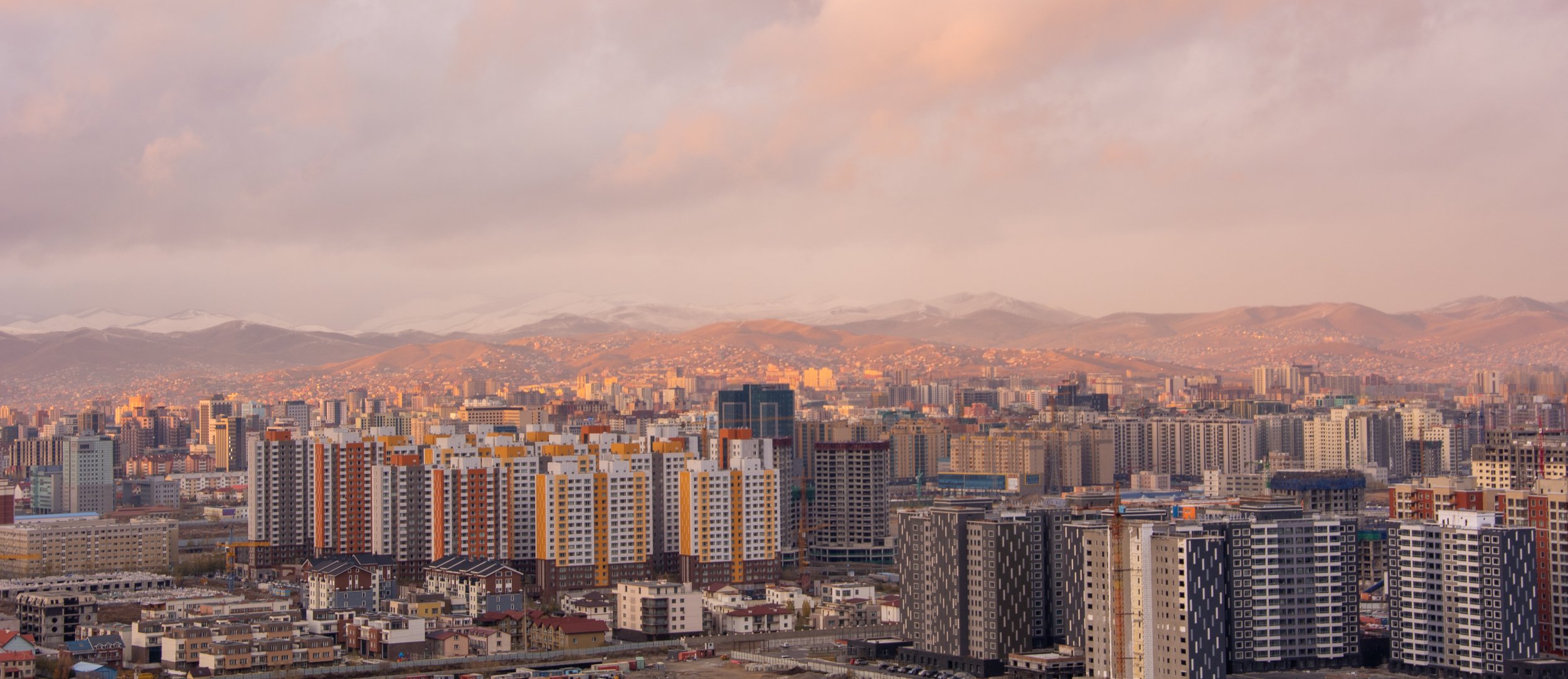
News & Events
News on this page is organized into subsections:
SOCIETY NEWS,
CALL FOR PAPERS,
FUNDING, & DEVELOPMENT OPPORTUNITIES,
SOCIETY ANNUAL MEETINGS,
SOCIETY PUBLICATIONS,
SOCIETY VISITS & LECTURES,
SOCIETY CELEBRATIONS, &
SOCIETY REMEMBRANCES
SOCIETY NEWS
A Message from the Society’s President, Amb. (ret.) Michael Klecheski
December 15, 2025
Amb. (ret.) Michael Klecheski
Dear members and friends of The Mongolia Society,
The Mongolia Society had another highly productive year, continuing to carry out the core mission it has pursued effectively for over six decades: advancing the study of Mongolia, notably its history, language and culture. In an unusually challenging period for scholarly institutions, however, the Society needs your support more than ever, making this year’s appeal for contributions particularly important.
As always, the Society’s annual meeting was a highlight of the past year, and this year, in-person and online participation was higher than it has been in recent memory. For the first time, the Society brought together all the former U.S. ambassadors to Mongolia to discuss their ambassadorships and the broader bilateral relationship. The transcript of that panel, when completed, should prove invaluable for scholars and policymakers. The three other panels also offered fascinating presentations on the changing Mongolian language, premodern connections and modern influences on Mongolia and its place in the world. A session at George Washington University focused on two decades of Smithsonian research in Mongolia. Mongolian Ambassador Batbayar Ulziidelger graciously hosted a reception for all the meeting participants.
Another highlight of the year was our publication of Occasional Paper 30, Reflections on the Checkered Century: The Memoirs of a Mongolian Ambassador, by Ambassador Uriankhan Jargalsaikhan. It is an interesting read, full of insights on recent Mongolian history and diplomacy. You can order your copy from our website (mongoliasociety.org) or by contacting the Mongolia Society office (monsoc@iu.edu).
Following the annual meeting, the Society began stepping up its social media presence. We hope that you will follow our Facebook and Instagram pages.
To accomplish its mission, the Society depends heavily on dues and donations. I do hope you will contribute again this year, as well as renewing your dues and considering putting the Society in your will.
We very much hope for your support!
Michael Klecheski Ambassador (ret.), President, The Mongolia Society
A Report of Society’s 2025 Annual Meeting
December 1, 2025
The Mongolia Society’s 2025 Annual Meeting & Panels, held on Saturday, October 4, 2025, at the Embassy of Mongolia in Washington, DC, was a rousing success.
See a report and images of the meeting on our Annual Meeting page.
Donations are being accepted for the Society’s Naadam Fundraiser 2026
Do you have items related to Mongolia that you don’t need anymore?
Donate them to the Society!
The Mongolia Society is accepting donations for its Naadam Fundraiser 2026, a 3-week silent online auction scheduled for July 2026. We welcome all donations, especially those related to Mongolia or Mongolian culture. These can include Physical objects, such as books, artwork, furniture, musical instruments, and so on, and Services, such as meal coupons at a local restaurant or language translation work.
Please contact Executive Director Susie Drost: (812) 855-4078; monsoc@iu.edu.
All donations made to The Mongolia Society are tax-deductible. Those who donate will receive a letter of affidavit that can be filed with your IRS income tax return.
Opportunity to Join the Society’s Board of Directors
December 15, 2025
Are you a Mongolia Society member and interested in serving on our organization’s Board of Directors? If so, contact Executive Director Susie Drost (email: monsoc@iu.edu) and ask to be put on the next The Mongolia Society ballot. The Board of Directors term is three (3) years.
CALL FOR PAPERS
Call for Papers: The Fourth Morin Khuur Festival in the USA, Denver in 2026
The Fourth Morin Khuur Festival in the United States will take place on May 8-10, 2026, at the Robert and Judi Newman Center for the Performing Arts at the University of Denver. Continuing the work of previous festivals, the 2026 event will bring together musicians, scholars, instrument makers, and cultural enthusiasts to celebrate and explore the contemporary development of the morin khuur, Mongolia’s iconic horsehead fiddle.
This year’s festival aims to foster dialogue between amateur and professional performers, highlight current trends in instrument making and performance practice, and consider new directions for the morin khuur’s evolution in the twenty-first century. Alongside the scholarly program, the festival will feature concerts, master classes, panel discussions, and a competition for amateur players. The organizers hope the event will strengthen awareness of Mongolian musical culture in the United States and support Mongolian communities in maintaining their heritage.
As part of the program, the festival committee invites 200-300 word abstracts on any topic related to the morin khuur, including its history, craftsmanship, musical structure, and cultural significance. Abstracts may be submitted in English or Mongolian, and selected presenters will be allotted 20 minutes; translation will be provided. The deadline for abstract submission is January 30, 2026.
Abstracts should be sent to us-festival@morin-khuur.org.
Scholarly inquiries may be directed to peter.marsh@csueastbay.edu, with general questions sent to us-festival@morin-khuur.org
Call for Papers: International Conference to Mark Jamtsyn Badraa’s 100th Anniversary
In 2026, scholars in Mongolia and abroad will commemorate the centennial of Jamtsyn Badraa, one of Mongolia’s most influential cultural figures. To honor his life and work, an international academic conference will be held at the National University of Mongolia in Ulaanbaatar on March 20, 2026. The event is organized by the Jamtsyn Badraa Foundation, the Department of Literary and Art Studies, and the Institute of Mongolian Studies, with participation from the Institute of Language and Literature of the Mongolian Academy of Sciences and the Mongolian University of Arts and Culture.
The conference aims to reassess Badraa’s contributions to folklore, ethnomusicology, poetics, translation studies, and Mongolian stylistics, which are fields in which his scholarship helped define modern approaches. His wide-ranging work on long song traditions, oral literature, and cultural terminology continues to shape contemporary research, while his translations from Hindi, Sanskrit, Italian, English, and Russian expanded Mongolia’s intellectual horizons.
Participants are invited to present new research related to Badraa’s legacy or to topics aligned with his scholarly interests. Papers may address folk art, poetics, ethnomusicology, stylistics, translation, or media studies. Submissions may be written in Mongolian or English and should include a title, abstract, keywords, and references, with a final length of five to eight pages.
The deadline for titles and abstracts is February 1, 2026, and full papers are due May 1, 2026. Inquiries may be directed to Dr. B. Tsetsentsolmon: tsetsentsolmon.b@num.edu.mn.
FUNDING & DEVELOPMENT OPPORTUNITIES
Mongolian-U.S. National Civic Engagement Program (MUNCEP) Applications for 2026 are Open
The MUNCEP is hosted by the US Asia Institute (USAI) in collaboration with the Embassy of Mongolia from June 1 – July 31, 2026 in Washington, D.C. MUNCEP offers students or graduates of Mongolian-descent the opportunity to participate in a summer of professional development and civic leadership. Eligible applicants must be 18-25 years old and of Mongolian descent, current students or recent graduates, U.S. citizens, permanent residents, or valid F-1 visa holders, and able to relocate to Washington, D.C. Full eligibility requirements can be found on USAI’s website. The application deadline is January 31, 2026, with final decisions announced by February 13, 2026. For questions, students can reach out to anna.bunn@usasiainstitute.org.
PUBLICATIONS
The Society Celebrates the Release of its Latest Publication
October 15, 2025
Reflections on the Checkered Century: The Memoirs of a Mongolian Ambassador, by Uriankhan B. Jargalsaikhan (Occasional Papers #30, October 2025).
In Memoirs of a Mongolian Ambassador, U. B. Jargalsaikhan traces his five-decade-long career working in Mongolian’s foreign service during the checkered twentieth century. He reflects about how, during his student years in the 1930s, he witnessed Soviet efforts to instill a communist ideology into the life of the Mongolian people and to repress those, including the national elites and clergy, who dared to voice their doubts about them.
He writes in vivid detail about his first post, serving at the Mongolian Embassy in Moscow in 1941, and how he and his staff had to work in spite of German bombing of the city. He later served as Mongolia’s first Ambassador to China and discussed the establishment of bilateral relations with Chinese leader Mao Zedong.
Long an advocate for Mongolia’s membership in the United Nations, Jargalsaikhan was in the room in 1961, when this status was finally achieved. He served as Mongolia’s first Permanent Representative to the UN and later traveled throughout Europe, Africa, and Asia promoting bilateral relations.
This beautifully written and accessible memoir provides us with a behind-the-scenes look at the inner workings of the Mongolian government in a tumultuous and at times exciting period in its history.
Memoirs costs $38.00, plus postage, until November 1, 2026. After then, the cost will be $50.00, plus postage. (U.S. postage $5.50, overseas postage varies by destination.)
To purchase your copy of this publication, go to our Publications Publications page page.
SOCIETY PRESENTATIONS & LECTURES
The Mongolian Consul-General Visits Indiana University
December 15, 2025
The Hamilton Lugar School of Global and International Affairs, in partnership with the Mongolia Society, hosted Mongolian Consul General Munkhbaatar Begzjav and a delegation of prominent Mongolian representatives at Indiana University in December. During the visit, the delegation met with representatives from the Hamilton Lugar School and the Mongolia Society, visited Mongolia-related classes, and engaged with students studying the Mongolian language and related fields.
Director of the Zanabazar Museum of Fine Arts Visits Indiana University
Dr. Baigalmaa Purevsukh, Director of the renowned Zanabazar Museum of Fine Arts, visited Indiana University this year. During her visit, she toured several prominent artistic and literary institutions in Indiana, including the Lilly Library and the Eskenazi Museum of Art (pictured below with Prof. Orna Tsultem).
The Society’s President, Ambassador Michael Klecheski (Ret.), Presents a Lecture on Mongolia’s Independence
March 1, 2024
Ambassador Michael Klecheski
Ambassador Michael Klecheski, the U.S. Ambassador to Mongolia from 2019 to 2022, presented a Mongolia Society lecture, “Mongolia’s Third Neighbor Policy in Practice: A Case Study from a former U.S. Ambassador’s Years in Mongolia,” on February 20, 2024. Lecture attendees–students, faculty, and Mongolia Society members–gathered around a large discussion table at the Global and International Studies Building on the campus of Indiana University, Bloomington, or watched via a Zoom link.
The Ambassador discussed the challenges and successes that helped strengthen Mongolia’s independence “in a tough neighborhood.” In response to the question, “How does Mongolia, landlocked between China and Russia, maintain its independence and democratic system?,” he pointed to the nation’s so-called “third neighbor” policy, which seeks out good ties with other countries, the United States in particular, as being one key factor in maintaining its independence. As the U.S. Ambassador to Mongolia, Michael Klecheski was instrumental in that policy’s implementation and he shared his own personal experiences with this process.
A video recording of this lecture is available here: YouTube
Michael Klecheski retired from the U.S. State Department after his years as Ambassador to Mongolia. That was the last assignment of his over 35 years as an American diplomat, during which he served abroad in Russia, Kazakhstan and elsewhere, and in Washington D.C. on the Department’s 24-hour Operations Center and the NATO Desk. He also served as Director (and for a time, Acting Senior Director) for Russia at the National Security Council.
Currently President of The Mongolia Society, the Ambassador has a M.A. and M.Phil from Columbia University in political science and a BSFS (Bachelor of the Science of Foreign Service) from Georgetown University. He also has an honorary doctorate from the Mongolian National University.
SOCIETY REMEMBRANCES
The Society Remembers Steve Richard Saunders (1946-2025)
December 15, 2025
The Mongolia Society mourns the passing of Steven Richard Saunders, who died on July 5, 2025, leaving be-hind a profound legacy as a diplomat, businessman, and one of Mongolia’s most steadfast "Third Neighbor" advocates.
Steve’s career was defined by an “unquenchable thirst for knowledge” and a rare gift for human connection. After serving as Assistant U.S. Trade Representative, he turned his focus to the Pacific Basin, eventually be-coming President of the North America-Mongolia Business Council (NAMBC). His work went far beyond com-merce; he was a foundational figure in the democratic transition of Mongolia.
Former Mongolian President and Prime Minister Tsakhia Elbegdorj paid tribute to Steve’s early commitment to the nation on the X platform, noting that Steve arrived in the 1990s as a pioneering advisor when the country was taking its first bold steps toward democracy. “Steve's message was consistent and clear: Mongo-lia matters, and Mongolia is ready,” Elbegdorj wrote. He further characterized Steve as “a mentor, a tireless bridge-builder, and a steadfast believer in Mongolia’s promise.”
His dedication did not go unnoticed by the Mongolian state. Steve was awarded the Order of the Polar Star, the highest tribute Mongolia bestows upon a foreign citizen. As his obituary noted, he developed a “special relationship with Mongolia’s people and their culture,” a bond reflected in his personal collection of Asian art and his deep friendships in Ulaanbaatar.
Beyond his professional accolades, Steve was a man of wit and “infectious personality” who mentored many in the field. He is survived by his wife of 48 years, Maureen Collins Saunders, and their children. As President Elbegdorj concluded, “Perhaps [his] greatest gift was his ability to bring people from vastly different back-grounds closer together.” The Mongolia Society extends its deepest condolences to the Saunders family.
The Society Remembers Dr. György Kara
October 19, 2022
Photo by Y. Boldbaatar. Used with permission.
As we end 2022, we reflect on those dear friends and colleagues we lost this year. In particular, our Society remembers Dr. György Kara, or Khar Dorj, as he was known to his many students, friends, and colleagues. A long-time member of the Mongolia Society and long-time Chairman of the Board, Dr. Kara was a much-beloved instructor, mentor, and colleague. The following is a brief summary of his life and contributions to our field.
Dr. Kara’s Career Achievements
Dr. Kara was Professor of The Hamilton Lugar School of Global and International Studies and Professor emeritus of ELTE University in Budapest, Hungary. From 1970-2000, he served as chairman of the Department of Inner Asian Studies at ELTE and from 1973-2005, as head of the Research Group for Altaic Studies of the Hungarian Academy of Sciences. For several years, he also served as chairman of ELTE’s Department of East Asian Studies and director of its Institute of Oriental Studies.
He was a member of the Hungarian Academy of Sciences and of the Committee of Oriental Studies of the Hungarian Academy of Sciences. From 1958-2005, he taught Mongol, Tibetan and Tungusic language courses at ELTE University in Budapest. He did the same at Indiana University in Bloomington, where he was invited, in 1986, to teach a broad range of subjects, including Altaic linguistics, Classical Mongol, Buriat, Manchu, Ewenki, Chuvash, Old Turkic structure, Old Turkic in various scripts, Mongolic languages and dialects, Shamanism and folk religion of the Mongols, their traditional civilization, literature, folklore, writing systems and phonetic history as well as several new courses for Department of Central Eurasian Studies. He continued teaching at Indiana University until his last stay in the hospital in April 2022.
Dr. Kara was an internationally respected scholar in his field. Expert in Mongolic languages and cultures, Altaic philology and Inner Asian cultural history, he contributed more than 400 publications on Mongolic, Turkic, Tungusic and Tibetan studies.
Dr. Kara was a member of the editorial board of professional journals and serials in Hungary, Russia, the United States, and China. He did field work and research, edited several important documents of Mongol language, cultural and literary history, translated old and new Mongol literature, recorded and analyzed oral texts, and described some hitherto unexplored dialects. He was a guest in the School of Oriental and African Studies, University of London; spent a year as senior researcher in Europe’s largest collection of Mongol old books and manuscripts in St. Petersburg, Russia; was visiting scholar in Japan, between the 1970s and 2002 did regular research work in the Turfan Collection of the Berlin-Brandenburg Academy of Sciences in Germany.
He was recipient of the Alexander von Humboldt Forschungspreis, the Pole Star Order and Labor Merit Order of Mongolia, the Gold Medal of the Permanent International Altaistic Conference, the Alexander Csoma de Kőrös Prize, the Europa Publishing House Prize (Budapest), and diploma of honor from the Ministry of Foreign Affairs of Mongolia. He was an honorary member of the Central Eurasian Studies Society (USA), the International Association of Mongolian Studies (Ulaanbaatar), and the Turkish Language Society (Ankara). Some of his anniversaries were honored with six collections of papers. No less than seven Festschrifts have been published in his honor.
The following statements were made by several of Dr. Kara’s colleagues. They were posted to the Facebook page of the Hamilton Lugar School of Global and International Studies. A forthcoming issue of the Society’s journal Mongolian Studies will honor Dr. Kara’s contributions to our field.
Öner Özçelik, Central Eurasian Studies Chair: “I feel very fortunate that, last Spring, I was able to audit his course 'Old Turkic',” said Özçelik. “He was truly devoted to his field; he could have hours of discussion about the origins of a single word, and in doing so, he could take you on a trip from one end of the world to another. He cared a lot about his students, who meant the world to him. He even tried to continue his three classes this semester even through hospital stays, in heroic Professor Kara fashion. Beyond his scholarship and teaching, despite his deep knowledge about the field, he was a very humble person, and always added some humor to his conversations. He will be truly missed."
Dr. Jamsheed K. Choksy, CEUS Distinguished Professor: “While I was chair of the department, every summer he would visit Hungary for research. He would always ask me if there was anything he could do to further IU or the department while in Hungary,” Choksy shared. “He always placed the students first, right to the end. Professor Kara’s knowledge will be impossible to replace.”
Professor Christopher Atwood, University of Pennsylvania: “A life can’t be summed up in the printed word, but my teacher … could be captured in his voice,” said Atwood. “That slight frown, that quiet laugh, that distinctive accent, that eccentric vocabulary full of amusing witticisms and insights — that was him. No one who learned from Professor Kara would ever denigrate precise and exact knowledge … but remembering his living voice, I know its limits. Amurlingui noirsooroi, bagsh aa.”
As our Society grieves for our friend and colleague, Professor György Kara, our hearts go out to his family during this difficult time.
